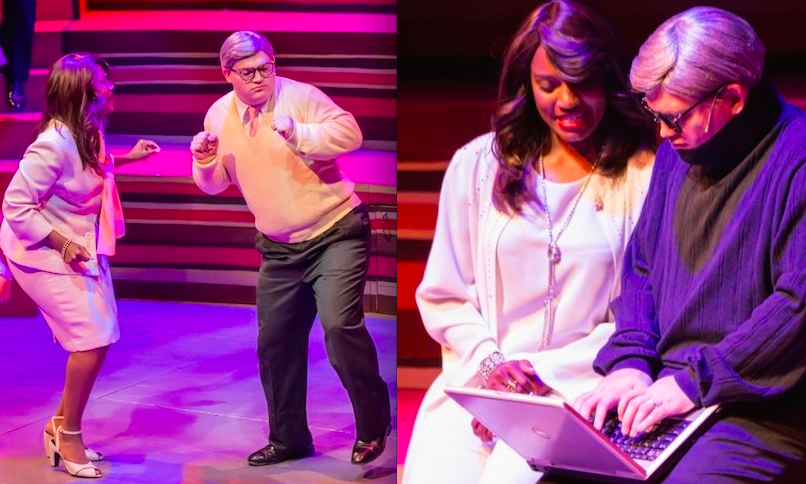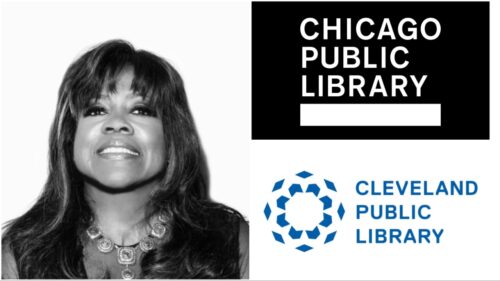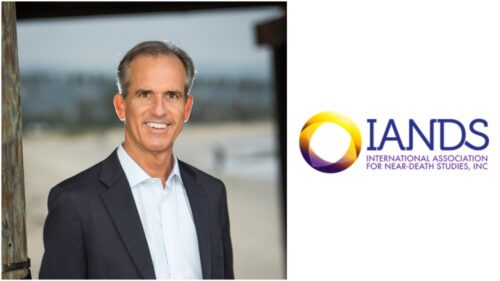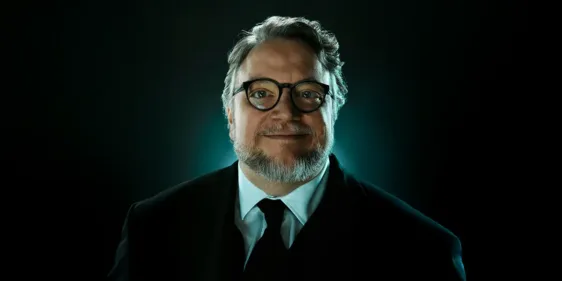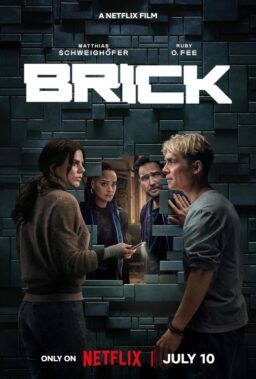Very few people are ever afforded the privilege of watching their own life being portrayed by a gifted cast and crew onstage—in a musical, no less. That was what I experienced while attending the Opening Night performance of Jackie Taylor’s “The BlackWhite Love Play” at The Black Ensemble Theater in Chicago. What a beautiful tribute it was to Roger and to me. The play recounts our love story in musical form, scored to a medley of original songs and classic tunes. Theater director and playwright Jackie Taylor asked me a few questions here and there as she was writing the play, but I was stunned at how intensely personal the production was, with Jackie guessing at words that Roger and I said to each other in real life, and more often than not, hitting the nail on the head. Everyone with a heart loves a love story, and this one made my heart rejoice that I have been so fortunate as to have actually lived it, even though the price I pay is that a deep love makes the longing that much deeper as well.
I have to admit it was surreal, and at times self-consciously so, to watch someone else portray me and Roger onstage. But Jackie’s casting was brilliant. The radiant and talented Rashada Dawan was a better Chaz than I am, and at the intermission I heard over and over again how she nailed my speech, my walk, my personality, my spirit. Surreal.
My family and friends remarked what a joy it was watching Rashada’s happiness in the vignettes about the Eberts at home. They had shared in our evenings of entertaining and dancing and singing and so remarked how “real” those vignettes were. Of course, we also had evenings with deep discussions about politics and world problems. And some evenings were just quiet ones spent reading by the fireplace, or watching movies. But that is another tale, better told in Roger’s memoir or Steve James‘ documentary, or the book I am writing or the countless other articles and interviews done over the years. This production was conceived by Jackie Taylor as a love story after all, and so Jackie wisely concentrated on the love, and so did Rashada.

How in the world did I have the fortune to be portrayed by this luminous actress? Rashada has a magnetic stage presence and a beautifully expressive singing voice. Most recently she toured with “The Lion King.” This night she commanded the room as she easily sauntered from one scene to another. And as they say in show business, she owned that stage. She brought the audience to its feet with her soulful rendition of “Help Me Make It Through the Night,” representing my prayer to God on the first night of Roger’s death. Whatever else I may have done that profoundly sad night, Rashada’s song is forever seared in my memory. Rashada is truly a star.
Roger’s championing of empathy and our impassioned stance against prejudice were very much alive in the actions of the Greek Chorus. In fact, many people said they felt Roger’s spirit in the theater. Some even insisted that they saw him, for a fleeting moment, sitting in the audience, in the chair that was left vacant for him in the front row. Among the people who saw Roger was Kevin Pollack, the actor who portrayed him. (Pollack’s spot-on channeling of Joe Cocker in the Black Ensemble’s previous production of “Men Of Soul,” brought the house down.)
Kevin captured so many wonderful elements of Roger’s personality. I smiled at the very smart alecky Roger-like retorts Kevin made in Act One. Roger was one of our most gifted thinkers and writers and social activists but Jackie was going for a lighter slice of life, showing Roger in his infatuated glory. And it was good to see this carefree side of him, unencumbered by illness or problems, not engaged in debates with Gene Siskel, but reveling in the first stages of love.
Roger had an ability to make fun of himself and others in a playful way that kept you from taking things too seriously. He was a delightful presence who made me feel thoroughly loved and respected. Kevin brought that to the stage, even wearing Roger’s uniform of a sweater vest and button-down shirt. Jackie even included a scene where Roger used one of his tricks to get out of an argument: laughter. No matter how serious the argument, Roger would find a way to make me laugh, often calling me one of his pet names like “Goddess” or “Lucy” (for Lucille Ball. He thought I was hilarious). He never just stormed off.
I tried to honor his dislike of conflict in our personal life by matching his humor. He said as a little boy hearing his parents argue tied his stomach into knots and so we rarely had real arguments. But the one we had that was a real doozy after the O. J. Simpson verdict was announced was captured well by Jackie. Despite the fact that Roger and I held similar views about race, we were two different people with two different upbringings, so of course we didn’t agree one hundred percent on everything.
In Act Two, when Pollack walked onstage carrying his computer (which should have been a Mac), and wearing a black turtleneck and pants and sat in his char to write a review, it felt as if my heart stopped. At that moment, he looked and moved uncannily like Roger. I was drawn back into the everyday of our lives and my heart ached. After two-and-a-half years of learning to live without him, I was seeing him there again, but this Roger was more melancholy. And I was curious how Kevin would telegraph Roger’s feelings since this was the period after he lost his ability to speak.
It was fascinating to watch how Kevin found just the right way to turn his head a bit more slowly and stiffly, and look up more attentively as he communicated. Kevin also found just the correct way Roger lovingly patted his chest to convey heartfelt wishes. I was drawn into that world once more. And the tears I shed were ones of gratitude for the seven additional years Roger was given by our doctors at Northwestern. Seven years more that Roger loved me, and I him. Seven more years to learn the lessons about patience and tolerance and compassion and forgiveness and eternal love. By the time we get to Kevin’s singing finale when he is dressed in white, I am relieved. Jackie tells what happens but doesn’t make it too maudlin or sentimental. In fact, it was curiously uplifting. Kevin is resplendent.
Part of that uplift can be attributed to Jackie’s use of a modern Greek chorus, which took the form of four couples who continuously switched partners throughout the show, celebrating the diversity of romance in all its colors and orientations. It enlarged the story beyond that of Roger and Chaz in a way that Roger would have appreciated. It was also refreshing to see the casting of people of all sizes and shapes and colors (Rueben Echoles, Porsche King, Robbin Major, Jhardon Dishon Milton, Matthew T. Payne, Jessica Seals, Kyle Smith, Sally Staats). And part of the uplift was provided by the personification of Humanity (Evelyn Danner), who even sang a song dedicated to Caregivers. It’s not everyday that you hear that.

The Greek chorus acted out the contradictory messages the sick person sends to the Caregiver, at one moment telling them to “leave me alone,” and the next imploring them not to leave. That is just life. Illness makes you uncomfortable and grouchy and angry at times, watching your body do things you don’t want it to do, and knowing where it will all lead. But the grace is that it also makes you drill down deep into the things that are the most important to you, and allows you to share those feelings in an open and transparent and decidedly unself-conscious way. That is part of the silver lining illness uncovers when it strips away the pretensions and allows you to discover who you are and what you are made of and perhaps, if you are lucky, discover what you were put on this earth to do.
And last, but certainly not least, uplift was provided by Qween Wicks playing my mother, whom the grandchildren affectionately called Big Momma. It is a term of endearment used in African-American communities for the elder wise woman in the family. In our family, it began when my niece, the first grandchild, would get confused about the roles of her mother and her grandmother. She finally resolved it by saying, “Okay, that is my Little Mama, and that is my Big Mama.” (Just so you know, it has nothing to do with size or weight.)
And how we all adored and worshipped Mother, Mrs. Johnnie Hammel. She was so kind and wise and loving and she also had the gift of “sight” or prophecy. She was also a good judge of character. So though it may seem curious that I would ask her permission to go away for the weekend with Roger when I had already been married and divorced, that was just the way it was, the respect I had for her. And her for me. I used to imagine that she was right up there with the Divine Mary. She just had that kind of presence. The character of Mother appears only a few times in the play but her appearance is substantial and meaningful. I have no idea how Jackie knew how much she meant to me and to Roger. Mother and Roger adored each other. And when Big Momma sings “His Eye Is On The Sparrow,” you know she means it. The performance by Qween Wicks was so powerful that whenever she came onstage, she brought grounded wisdom to the play.
Part of the magic of the evening was Taylor’s decision to have a live orchestra perform. She was adamant not to rely on canned music. Jackie said she wanted to be able to express the emotions of each scene more fully and that the live orchestra (comprised of musical director Robert Reddrick, Justin Dillard, Herb Walker, Danny O’Connor, Samuel Williams and Dudley Owens) helped to float riffs and connect the scenes. They were magnificent, never upstaging the actors or their emotions but enhancing them. I frequently was overcome with emotion, yet the overall feeling I had afterward was one of joy. This play, this music, was a labor of love that exuded the same positive energy that enabled Roger and me to keep moving forward during our most challenging times.
I sat with my lovely granddaughter Raven on one side of me, and my son Jay on the other, squeezing their hands so hard at times I am sure they must have gone numb. I was fortunate to have friends in the audience supporting me from Thailand, and California and Missouri and Massachusetts and Michigan and New York and of course my friends from Chicago, even from my grade school and high school classes. I just felt cocooned by love.
The soft beauty of the play opened spaces in my heart that smoothed the rough shut down places that I didn’t even know existed. And yet, Jackie didn’t run from racial themes. No matter how simpatico Roger and I were, the truth of the matter is we were an interracial couple and didn’t escape without some slings and arrows. People like to think that with the election of President Obama, we live in a post-racial society, or that since Roger was a public figure, an interracial relationship would be no big deal, but there are still too many instances of racial inequality that puts to bed that myth. Not to mention the racist statements and comments you will find in abundance on the internet. However, as Steve James, the director of “Life Itself,” once said, this story that played out between me and Roger and our families is one of hope for racial healing. I agree.
So thank you to Jackie, Rashada, Kevin and everyone involved with “The BlackWhite Love Play” for bringing Roger’s and my story to life, and for transforming our belief in tolerance into a rousing anthem of enlightenment. And thank you for giving us an evening that fills the heart with love and laughter. We all need more of that.
So many family members and cherished friends were in attendance that night, including my son, Jay.

To purchase tickets, call the Black Ensemble Theatre box office at 773-769-4451, or visit the venue’s official site. The theatre is located at 4450 N. Clark St. in Chicago. The play runs through November 15th. Showtimes are 7:30pm on Thursdays, 8pm on Fridays, 3pm & 8pm on Saturdays and 3pm on Sundays. Click here to read our interview with the play’s stars, Kevin Pollack and Rashada Dawan.

